Game programmers are the architects behind the interactive elements of video games. They transform creative concepts into intricate, playable realities, ensuring that every game is engaging and functional.
Skills required for a game programmer include proficiency in programming languages like C++ and Python, a strong understanding of game engines such as Unity or Unreal Engine, and abilities in problem-solving and teamwork.
Candidates can write these abilities in their resumes, but you can’t verify them without on-the-job Game Programmer skill tests.
In this post, we will explore 9 essential Game Programmer skills, 10 secondary skills and how to assess them so you can make informed hiring decisions.
Table of contents
9 fundamental Game Programmer skills and traits
The best skills for Game Programmers include Programming Proficiency, Game Engine Expertise, Mathematics Knowledge, Algorithm Design, Data Structures, Graphics Programming, AI Programming, Networking and Debugging Skills.
Let’s dive into the details by examining the 9 essential skills of a Game Programmer.
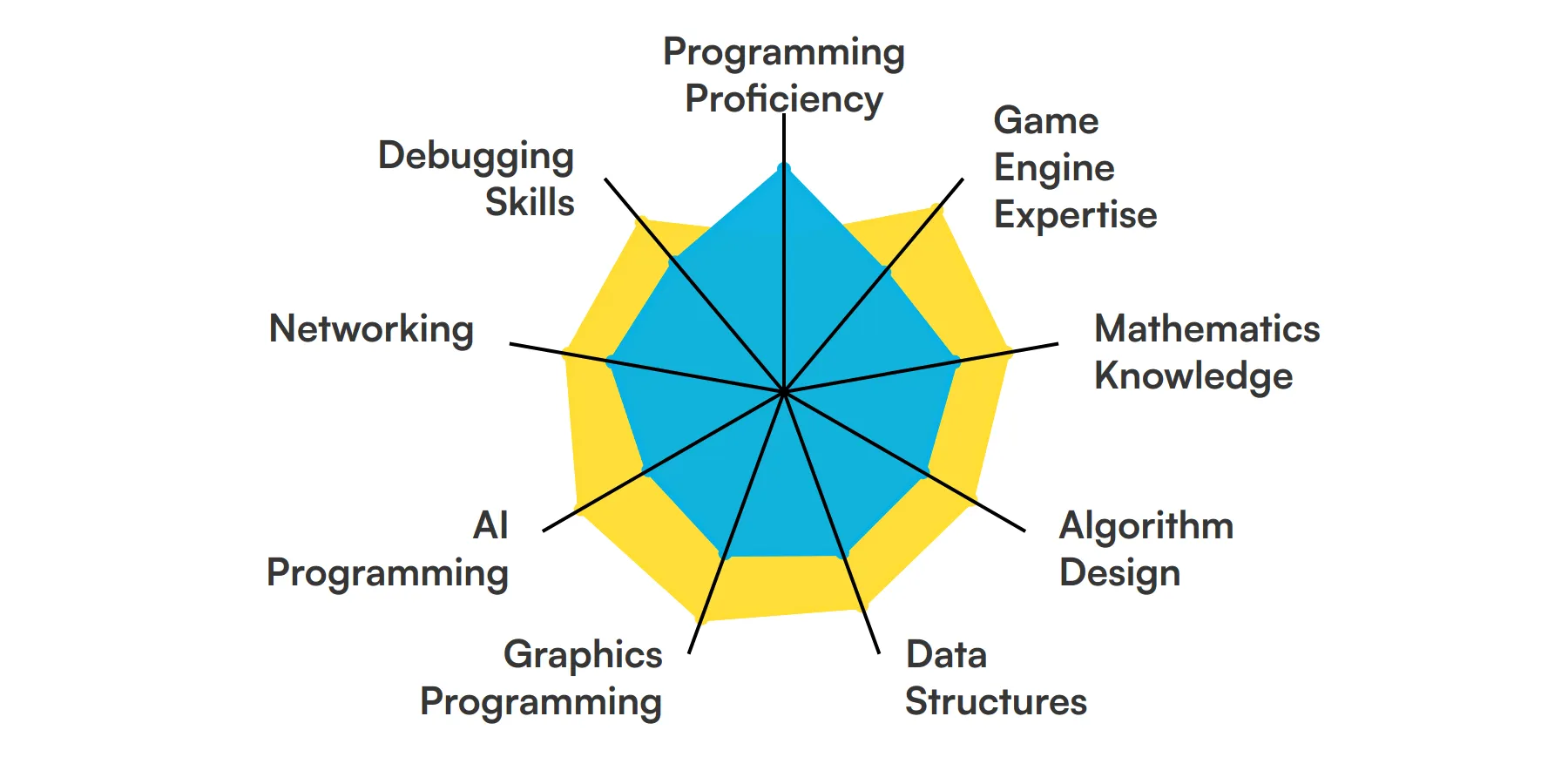
Programming Proficiency
A game programmer must be adept in multiple programming languages, such as C++, C#, and Python. These languages are the backbone of game development, enabling the creation of complex game mechanics and interactions.
For more insights, check out our guide to writing a Programmer Job Description.
Game Engine Expertise
Understanding and utilizing game engines like Unity or Unreal Engine is crucial for a game programmer. These platforms provide the tools necessary for rendering graphics, simulating physics, and managing game data.
Mathematics Knowledge
Strong mathematical skills are essential for game development, particularly in areas like linear algebra and trigonometry. These skills help a game programmer to handle graphics programming and physics calculations effectively.
Algorithm Design
Efficient algorithm design is key to optimizing game performance and resource management. A game programmer uses algorithms to solve problems related to game logic, AI behavior, and user interactions.
Check out our guide for a comprehensive list of interview questions.
Data Structures
A solid understanding of data structures such as arrays, lists, and trees is necessary for managing game state and player data. This knowledge helps in creating efficient and scalable game architectures.
Graphics Programming
Graphics programming involves the creation and management of visual elements in a game. Proficiency in technologies like DirectX or OpenGL is important for a game programmer to bring visual concepts to life.
For more insights, check out our guide to writing a Game Developer Job Description.
AI Programming
Artificial intelligence programming enables the creation of responsive and intelligent game characters. A game programmer uses AI techniques to enhance the interactivity and complexity of game environments.
Networking
For multiplayer games, knowledge of networking protocols and techniques is essential. A game programmer must handle data synchronization, latency, and network security to provide a smooth multiplayer experience.
Check out our guide for a comprehensive list of interview questions.
Debugging Skills
Debugging is a critical skill for identifying and fixing bugs in the game code. A game programmer must be meticulous and patient to ensure the game runs smoothly and is free from errors.
10 secondary Game Programmer skills and traits
The best skills for Game Programmers include Version Control, Scripting, Physics Engines, Audio Programming, Optimization Techniques, User Interface Design, Cross-Platform Development, Project Management, Localization and Testing.
Let’s dive into the details by examining the 10 secondary skills of a Game Programmer.
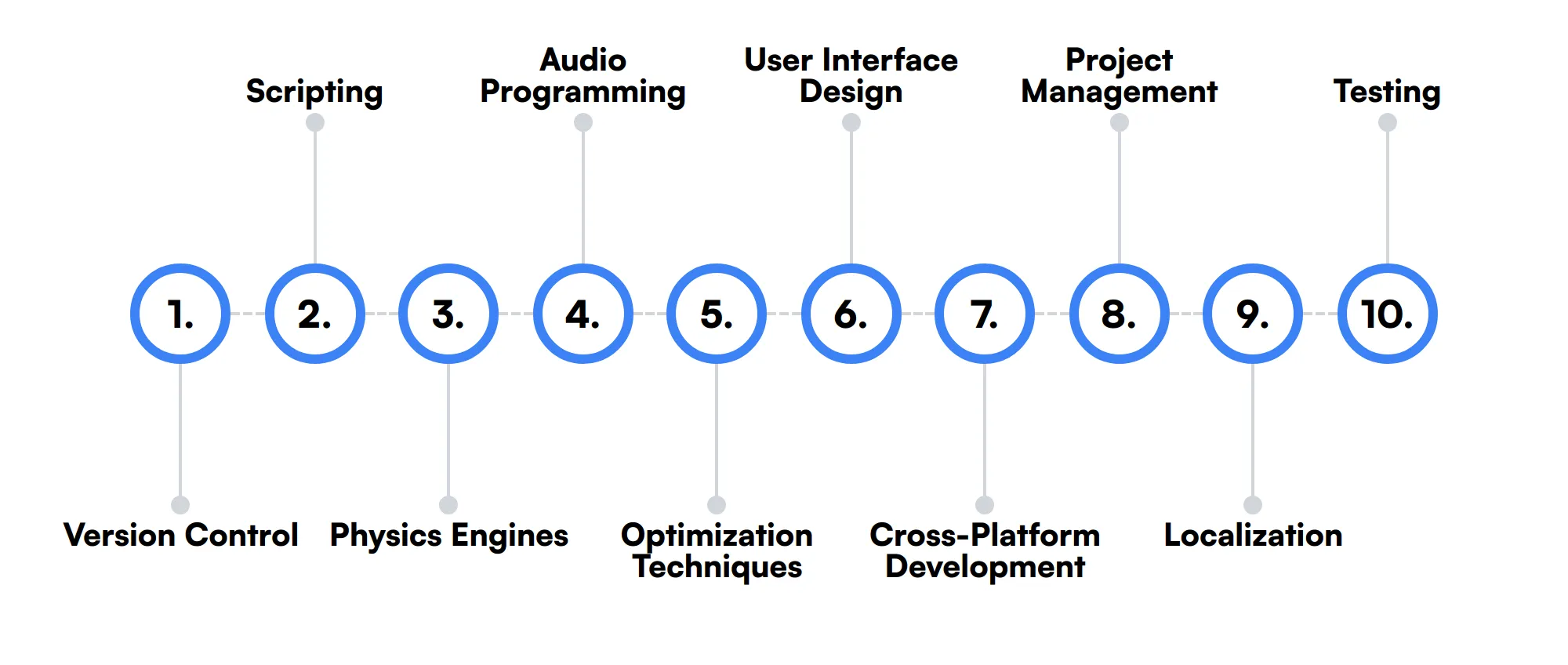
Version Control
Familiarity with version control systems like Git is important for managing changes in game projects and collaborating effectively with other developers.
Scripting
Scripting skills enhance a game programmer's ability to automate tasks and integrate assets into the game engine, using languages like Lua or JavaScript.
Physics Engines
Understanding physics engines helps in simulating realistic movements and interactions within the game, providing a more immersive experience for players.
Audio Programming
Integrating sound effects and music effectively can greatly enhance the gaming experience. Knowledge of audio APIs and middleware is beneficial.
Optimization Techniques
Optimizing game performance for various platforms ensures a smooth gameplay experience. Techniques include memory management, load balancing, and graphics optimization.
User Interface Design
Designing intuitive and appealing user interfaces is important for ensuring player engagement and usability.
Cross-Platform Development
Skills in developing games for multiple platforms (like PC, consoles, and mobile) expand the game's reach and accessibility.
Project Management
Basic project management skills help in planning development phases, managing timelines, and ensuring that projects stay on track.
Localization
Adapting games for different languages and cultures can broaden the market reach. Understanding localization processes is a valuable skill.
Testing
Systematic testing methods are crucial for ensuring the quality and stability of the game before release.
How to assess Game Programmer skills and traits
Assessing the skills and traits of a game programmer involves more than just glancing at their resume. It requires a deep dive into their technical abilities and problem-solving skills to ensure they can handle the complexities of game development. The key to a successful assessment lies in evaluating their hands-on proficiency across various domains such as programming, game engine expertise, and more.
Traditional interviews and resume screenings often fall short in measuring the true capabilities of a game programmer. This is where practical assessments come into play. By implementing skill-based tests that cover areas like programming proficiency, mathematics knowledge, and AI programming, employers can get a clearer picture of a candidate's ability to contribute to complex gaming projects.
For a comprehensive evaluation, consider using Adaface assessments, which are designed to measure a candidate's skills in a real-world context. These tests can significantly streamline the hiring process, achieving an 85% reduction in screening time. Whether you need to assess graphics programming or networking abilities, Adaface offers a tailored testing solution to meet your specific requirements.
Let’s look at how to assess Game Programmer skills with these 6 talent assessments.
Computer Programmer Coding Aptitude Test
Computer Programmer Coding Aptitude Test evaluates candidates on programming fundamentals, data structures, algorithm basics, technical aptitude, and coding skills.
The test uses scenario-based MCQs to assess problem-solving using logic, analytical thinking, and programming concepts. It covers algorithms, data structures, programming paradigms, syntax, and programming logic.
Successful candidates demonstrate proficiency in analyzing problems, identifying patterns, and developing solutions using programming concepts. They can write functional code regardless of the specific programming language or framework.
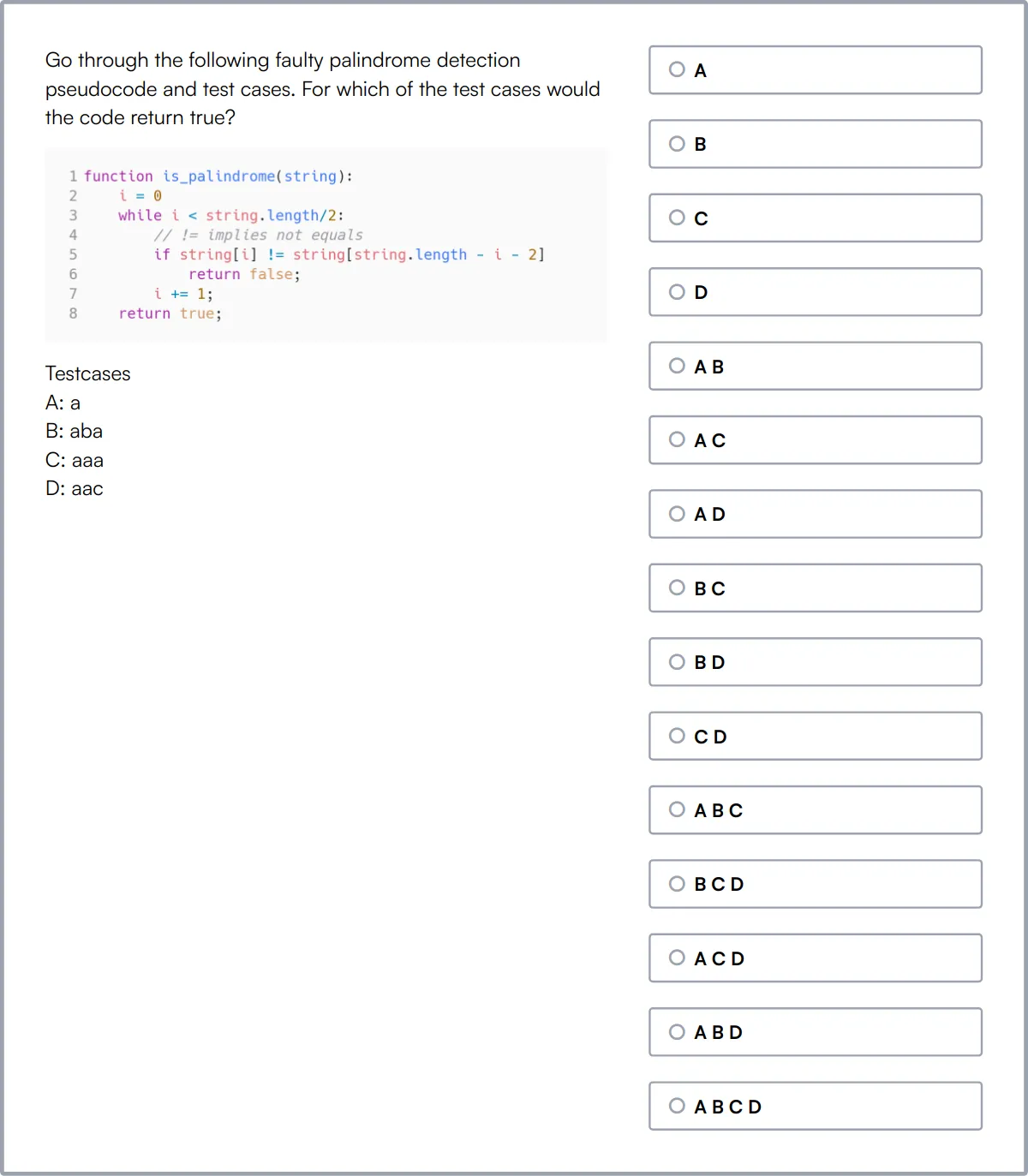
Probability Test
Probability Test evaluates a candidate's understanding of probability concepts and their application in quantitative analysis.
The test covers probability basics, combinatorics, random variables, joint distributions, quantitative aptitude, and numerical reasoning. It assesses knowledge of probability theory and data interpretation.
Candidates who perform well show strong skills in logical reasoning and quantitative analysis, essential for roles requiring data-driven decision-making.
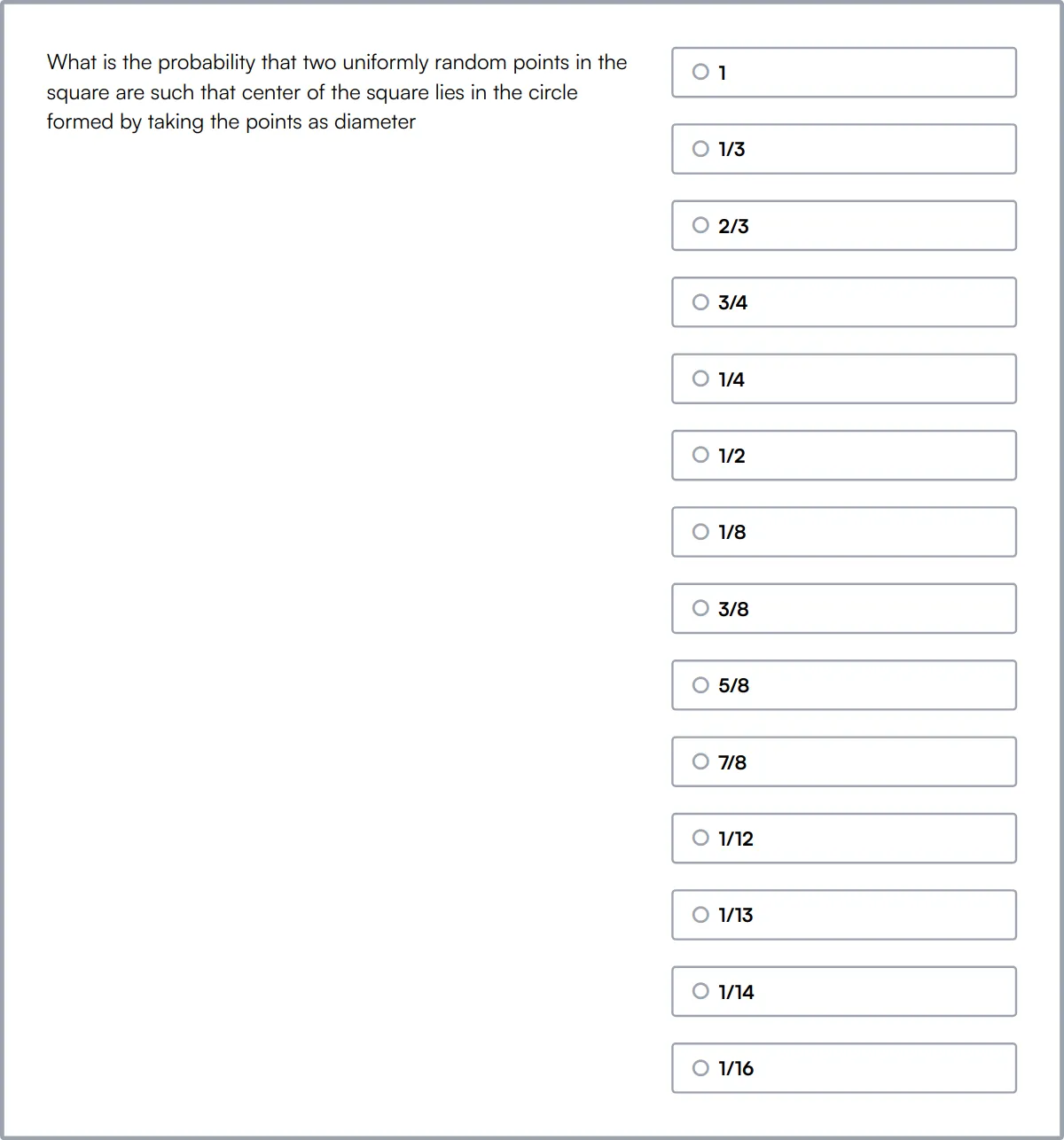
Software Engineering Online Test
Software Engineering Online Test evaluates candidates on core computer science concepts such as object-oriented programming, database design, algorithms, and data structures.
The test includes scenario-based MCQs and a coding question to assess understanding of programming paradigms, design patterns, testing, quality assurance, web development, software security, and code optimization.
High-scoring candidates demonstrate strong problem-solving skills and hands-on programming ability, essential for developing and maintaining software applications.
Computer Vision Test
Computer Vision Test evaluates a candidate's knowledge of computer vision techniques, including deep learning and machine learning algorithms.
The test covers image recognition, object detection, image segmentation, feature extraction, convolutional neural networks, neural networks, image classification, and Python.
Candidates who excel show proficiency in using computer vision frameworks and applying machine learning techniques to solve complex image processing tasks.
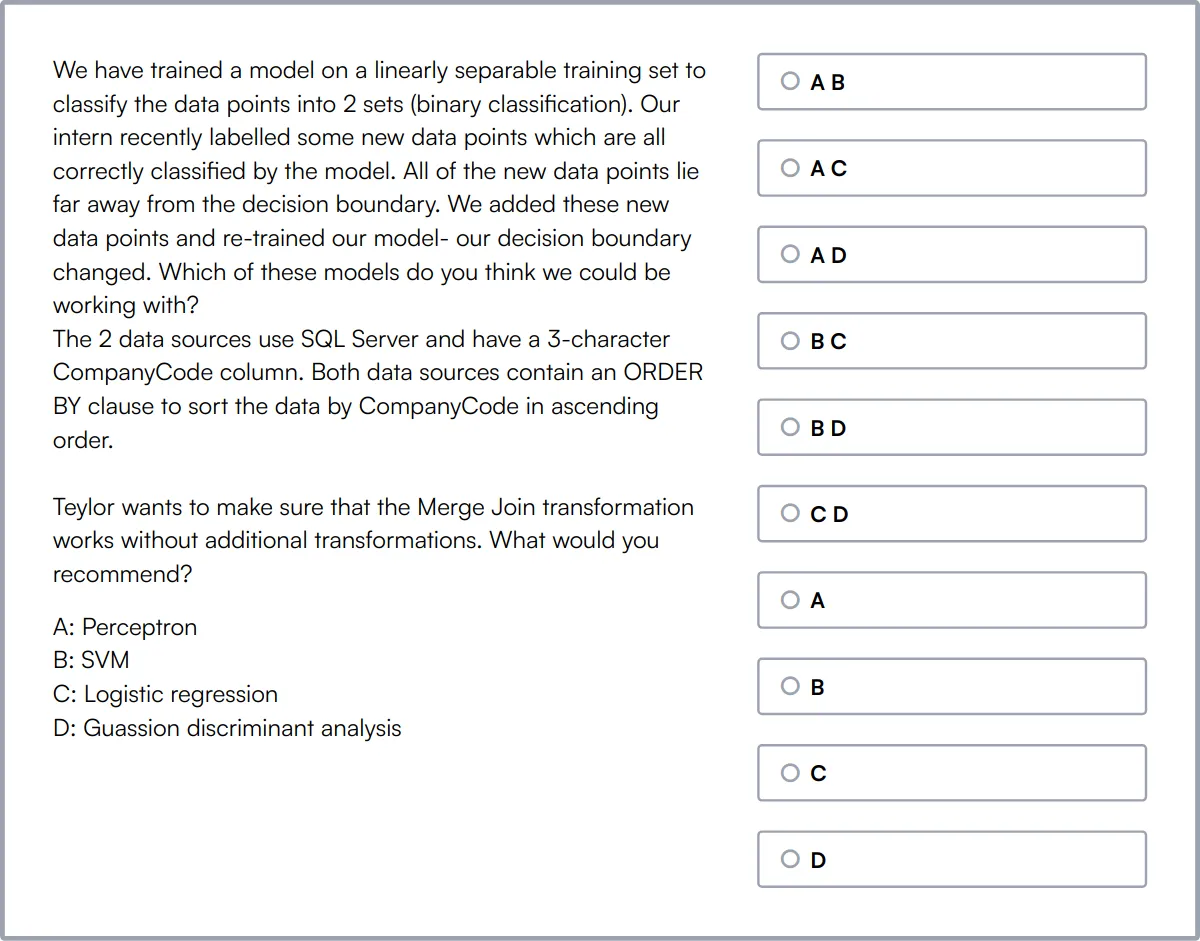
Machine Learning in AWS Online Test
Machine Learning in AWS Online Test evaluates a candidate's knowledge of machine learning concepts and their application in the AWS environment.
The test focuses on data science, data analysis, Kubernetes, AWS DevOps, and programming languages like Python and its libraries. It assesses the ability to leverage AWS services for implementing machine learning solutions.
Successful candidates demonstrate proficiency in using AWS for machine learning projects, including data analysis and model deployment.
Network Engineer Online Test
Network Engineer Online Test evaluates candidates on technical knowledge and practical skills related to computer networking.
The test covers network protocols, network security, routing and switching, network troubleshooting, wireless networking, network design, network management, TCP/IP, LAN/WAN, and network performance optimization.
Candidates who perform well show strong skills in designing, implementing, and maintaining complex network infrastructures and diagnosing network issues.
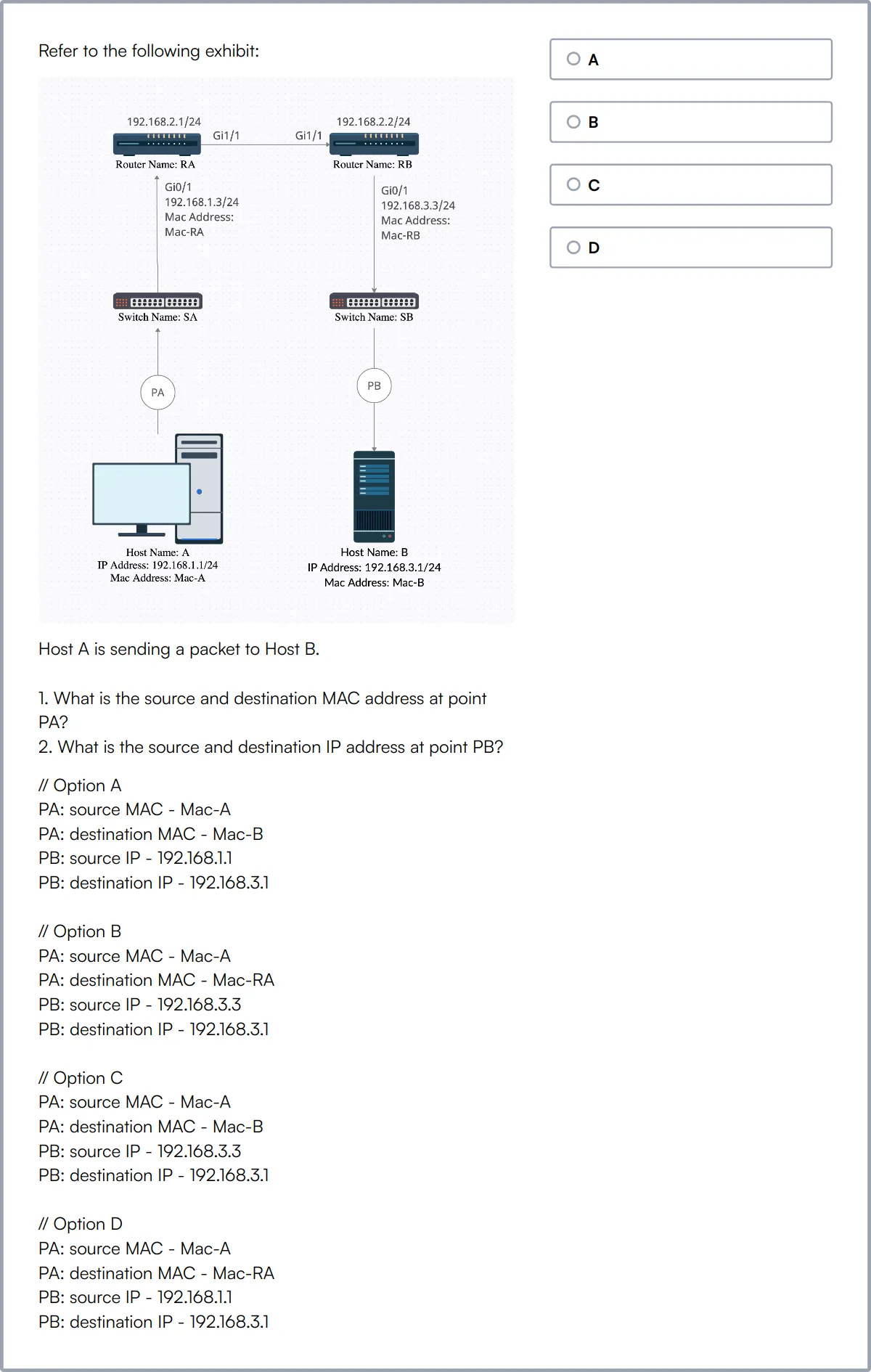
Summary: The 9 key Game Programmer skills and how to test for them
| Game Programmer skill | How to assess them |
|---|---|
| 1. Programming Proficiency | Evaluate candidate's ability to write clean, effective code. |
| 2. Game Engine Expertise | Assess familiarity and proficiency with popular game engines. |
| 3. Mathematics Knowledge | Test understanding of linear algebra, calculus, and probability. |
| 4. Algorithm Design | Review ability to create efficient, scalable algorithms. |
| 5. Data Structures | Check knowledge of various data structures and their uses. |
| 6. Graphics Programming | Gauge skills in rendering techniques and shader development. |
| 7. AI Programming | Determine expertise in pathfinding, decision-making, and machine learning. |
| 8. Networking | Examine understanding of network protocols and socket programming. |
| 9. Debugging Skills | Assess ability to quickly identify and fix software bugs. |
C Online Test
Game Programmer skills FAQs
What programming languages should a game programmer know?
Game programmers should be proficient in languages like C++, C#, and Python. These languages are commonly used in game development for their performance and versatility.
How can I assess a candidate's game engine expertise?
Ask candidates about their experience with popular game engines like Unity or Unreal Engine. Request examples of projects they've worked on and specific challenges they overcame.
Why is mathematics knowledge important for game programmers?
Mathematics is used in game development for physics calculations, graphics rendering, and AI behavior. Assess candidates by asking about their understanding of linear algebra, calculus, and geometry.
What are key data structures a game programmer should know?
Game programmers should be familiar with arrays, linked lists, trees, and hash tables. These structures are essential for efficient data management in games.
How do you evaluate a candidate's debugging skills?
Evaluate debugging skills by discussing past experiences where they identified and fixed bugs. Practical tests involving debugging a piece of code can also be effective.
What is the role of AI programming in game development?
AI programming is used to create intelligent behaviors in non-player characters (NPCs). Assess candidates by asking about their experience with AI algorithms and techniques like pathfinding and decision trees.
How important is version control knowledge for game programmers?
Version control systems like Git are essential for collaborative development. Assess candidates by asking about their experience with version control and how they manage code changes.
What should I look for in a candidate's experience with optimization techniques?
Look for experience in optimizing game performance, such as reducing load times and improving frame rates. Ask about specific techniques they've used, like code profiling and memory management.

40 min skill tests.
No trick questions.
Accurate shortlisting.
We make it easy for you to find the best candidates in your pipeline with a 40 min skills test.
Try for freeRelated posts
Free resources



